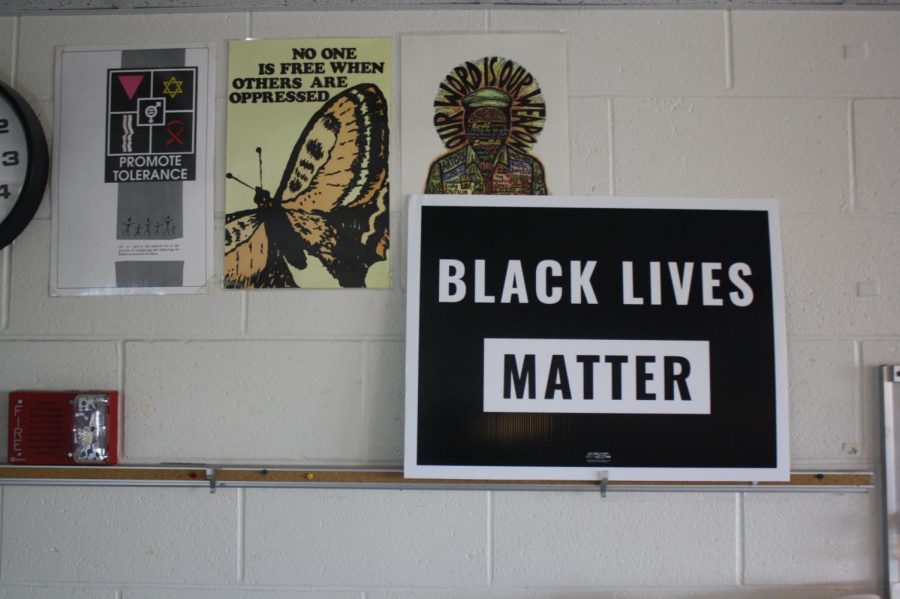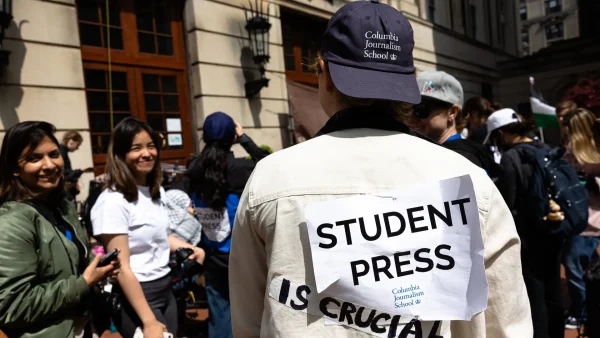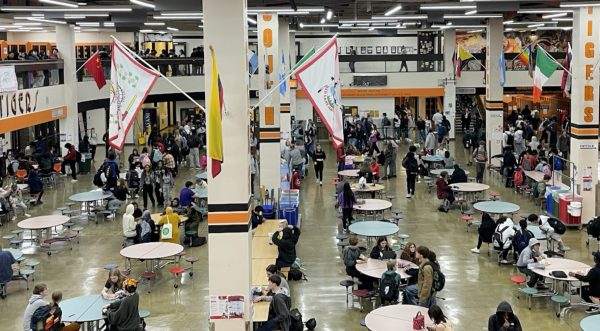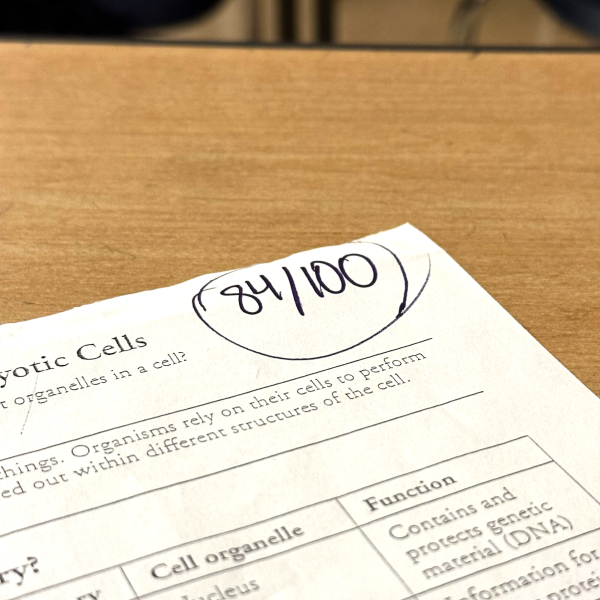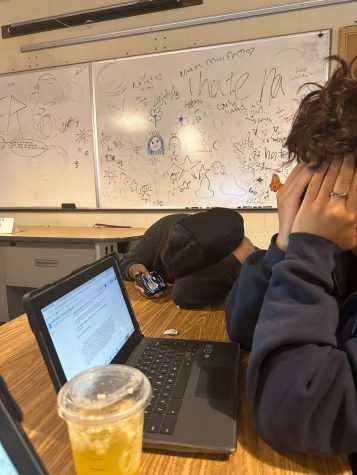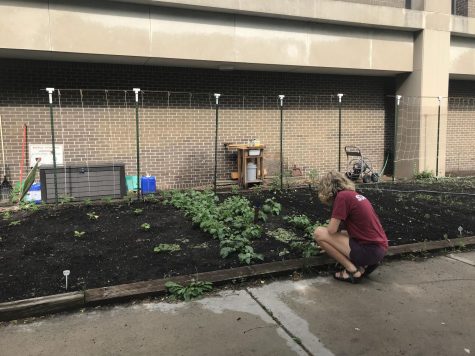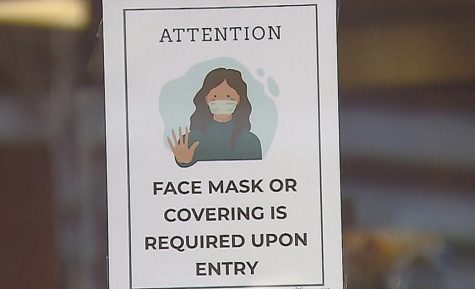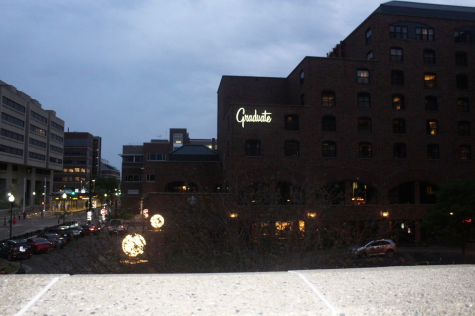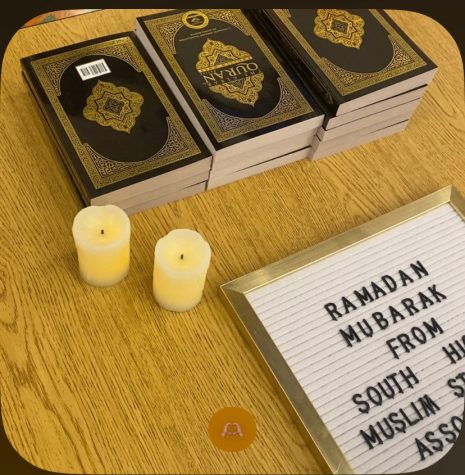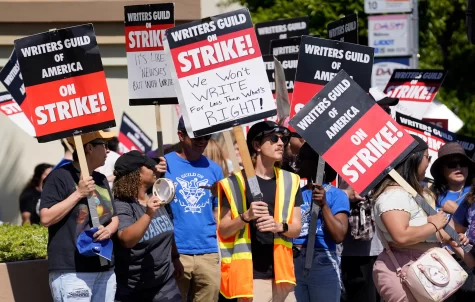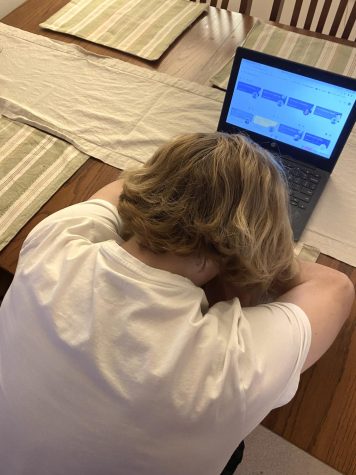Sometimes teachers have to be “political” in the classroom
Teachers are not supposed to share their political views, but sometimes they need to share them in order to create a safe space for all students, especially when those political views relate to human rights. “Students need to be supported as human beings by their teachers,” said senior Sydney Miller.
Politics. They divide our country, especially in the time that we live in now, which is a big reason why we try not to bring them up all the time. In schools, teachers are not supposed to express their own political views, which can be good in order to ensure that teachers do not force their opinions on us. But the definition of a “political view” can be, well, misinterpreted. For example, a teacher who is trying to make their classroom a safe space for all people should not be ridiculed and harassed for being “too political.” A teacher trying to make everyone feel welcomed in their classroom is doing their job better than one who doesn’t.
It is a teacher’s job to make the students feel welcome in the learning environment that they are in, and for some cases a teacher will have to take actions that can be viewed as political to make students feel safe. If someone is being discriminated against based on their race, sexual orientation, religion, or other parts of one’s identity then a teacher needs to intervene. And if a teacher was to take action, it would be wrong of anyone to criticize them and say that they are forcing their “political opinions” on students. Why? “If teachers are trying to make their classroom a safe space for all voices, [then they] are protecting our human rights,” said senior Sydney Miller.
However, we commonly mistake human rights and political opinions as the same things. Supporting human rights in the classroom can be considered as “political” but it shouldn’t be because human rights are, well, human rights. For example, a teacher promoting acceptance of transgender students isn’t “being political,” they are protecting the human rights of transgender students. Supporting a human right is saying that you agree that all humans should be given a certain freedom. Some human rights issues that are often labeled as “political” are supporting Black Lives Matter and LGBTQ+ rights, opposing Islamophobia and anti-immigration rhetoric, and many more things that relate to students’ identities. Not acknowledging these in a class, or trying to be apolitical in a situation where someone is attacking other students’ human rights or human rights in general, is showing a lack of support for students with marginalized identities. This, too, can be interpreted as a political stance.
Pretty much everything can be made political. It’s pretty much impossible for a teacher to teach you something without having a slight bias dealing with the topic they are teaching you about. Even all history textbooks are biased. “Everything is political. If I pretend to have no political views then I’m not being honest because even just in choosing my curriculum and choosing what I want to teach, and how I choose to teach it, that has political implications to it,” said history teacher Robert Panning-Miller.
Take NFL players who kneel during the national anthem for example. People who were outraged by this would say that it was wrong to make a political statement by “disrespecting the flag.” But you could argue that standing for the national anthem is a political statement as well. No matter what the players do, stand or kneel, they will be making a political statement.
Since teachers aren’t supposed to share their own political views, many of them are reluctant to show support to Black Lives Matter, LGBTQ+ acceptance, immigration rights, and advocates for other important issues. This is unfortunate because all of the groups that some teachers are reluctant to show support of are groups who are advocating for human rights that have been violated. For example, I’ve watched some students say homophobic things in classes, which upsets the other students, but the teacher seems kind of scared to intervene. Usually the teacher will ignore the student saying hurtful things, but then it makes the classroom feel less like a safe space. Therefore, it’s necessary for teachers to have political opinions to maintain the safe atmosphere that a classroom is supposed to have.
However, there is a line that teachers can cross when it comes to politics, and that is when a teacher tries to force their own political opinions on students. Classrooms where this happens can feel toxic and one dimensional. “We come here to get away from all of that and actually learn, since we look up to teachers it wouldn’t make sense for them to choose a certain side because some students might go with the other side,” said senior Amira Abukar.
In conclusion, it’s really important for teachers to express certain political views to promote tolerance and acceptance in their classrooms, as long as they don’t try to persuade students to take certain sides. Although it may sound impossible to not force opinions on students when trying to create a safe space, a classroom where teachers are intentional about promoting human rights for all of the students is better than one where a teacher doesn’t try to abolish hate and discrimination from their classroom because they “can’t be political.” I personally have stronger bonds with teachers when I feel safe and accepted in their classrooms then when I don’t feel safe and accepted.
“When I say schools are political and that people are political in their choices, that doesn’t mean that teachers should be pushing their political views, but [teachers] should be creating a space where people get to question and think about it, and that’s where being honest about our own views will be helpful in that way… if we pretend we are apolitical than students aren’t always going to be able to recognize when we actually do push an agenda by choices we make when we pretend that we are apolitical,” said Panning-Miller.

Caleb Stipkovits begins his 4th year at the Southerner as the new Editor-in-Chief. Passionate about writing, he even plans on going into Journalism someday. ...

